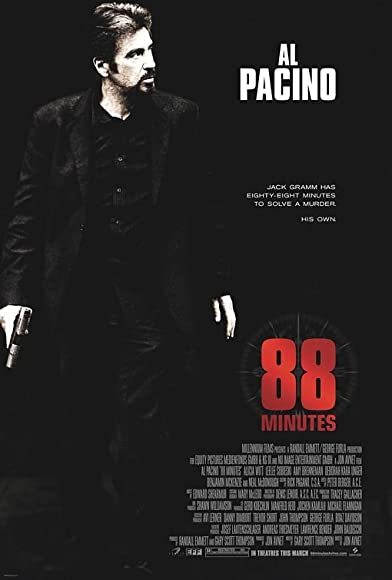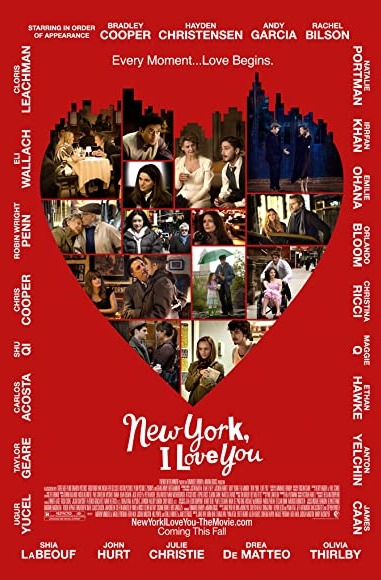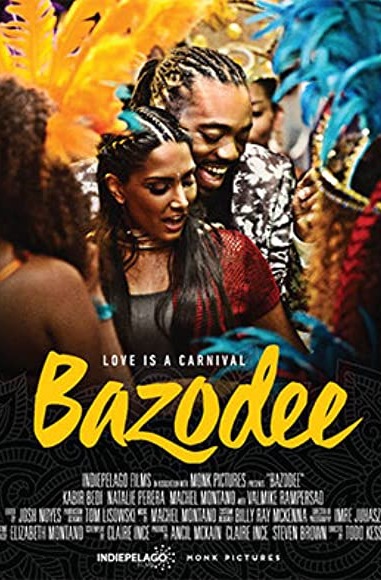Producing Low Budget Films


Webinar hosted by: Susanne Bohnet
CEO, Serafini Releasing
Susanne Bohnet is a producer who has worked on hundreds of films under $2MM. She was previously heading the U.S. office of Equity Pictures (Equity Pictures has been the second largest film fund in Germany). During her time with Equity Pictures, the company's annual investments grew from USD $30 million to USD $200 million. Ms. Bohnet worked with Equity Pictures on films with budgets between USD $2 million and USD $80 million. Prior to managing funds with Equity Pictures, Ms. Bohnet was S.V.P. of Taunus Film in Germany, where What Women Want (starring Mel Gibson and Helen Hunt) became the company's most successful Hollywood endeavor generating over $300 million of box office. and ancillary revenue. Mrs. Bohnet is a regular speaker at conferences, has spoken at the UN, was a consultant to create the Dubai Film Festival, has consulted for the Government of Trinidad and Tobago for many years assisting in building a film ecosystem and has lectured film, film-finance and business classes for many years as stand alone modules especially in emerging markets as the Middle East and the Caribbean and for financial institutions. Mrs. Bohnet holds a MBA degree in Media Economics from the Film/Media Academy in Cologne and a bachelor in Film from University of Dortmund. Full Bio »
Webinar Summary
Your goal as a filmmaker or producer is to make your project more financially attractive to investors over everyone else presenting projects to them. What many filmmakers and producers don't know is that there's a "sweet spot" in a film budget range that will help you raise funds successfully and get the ROI your investors are looking for. Setting the budget for your feature film below $2 million opens up a variety of options for you to be able to attach the talent you're looking for, the distribution you need and make your investors money. But first, you have to understand the financial blueprint to get you there.
For many independent film producers and filmmakers, approaching financiers and securing financing for your project presents one of the biggest challenges in the entire filmmaking process. How do you build your team, bring in development funds, attach name talent and work with rebates, sales estimates, and distribution to attract financing, all while compiling a plan to mitigate your financial risk? It can be overwhelming for a producer, especially given the ever-changing landscape and the increasingly competitive nature of independent film.
Susanne Bohnet is a producer who has worked on hundreds of films under $2MM. She was previously heading the U.S. office of Equity Pictures (Equity Pictures has been the second largest film fund in Germany). During her time with Equity Pictures, the company's annual investments grew from USD $30 million to USD $200 million. Prior to managing funds with Equity Pictures, Ms. Bohnet was S.V.P. of Taunus Film in Germany, where What Women Want (starring Mel Gibson and Helen Hunt) became the company's most successful Hollywood endeavor generating over $300 million of box office and ancillary revenue. Susanne has worked on countless productions under $2MM and is here with the Stage 32 community to share her knowledge.
Through this webinar, you'll receive the tools to approach your film from the investor's point of view so you can not only get the money you need for your project but, most importantly, how your investors can get that money back with profits. You'll be able to build a team around your project that will make investing more attractive and assure you don't make mistakes when you go after funding. You'll know the type of funding available to you and how to approach the investors attracted to and interested in every kind of financing. You'll dissect how to get agents on your side to attach talent to your project and how to work with attorneys. You'll also know the most effective distribution options for this type of film budget.
Give yourself the competitive advantage to understand the investors you need to approach, how to approach them, how to get talent attached, and, ultimately, how to get your film made, distributed, and profitable, so your investors return again and again!
What You'll Learn
- Script is King: You need a good script to make a good movie
- What to avoid to increase the budget, yet ensure a solid script that can deliver a cinematic execution
- Pitfalls to avoid during script development for an ultra-low-budget film
- The freedom to develop as you please with no oversight
- Do's and Don't's for Development
- Studio/ Streamer versus the low budget independent indie route
- Understanding your genre and your audience
- How to incentivize and recruit top tier Above and Below-the-Line attachments
- Development Funding
- You will need it, you need money to make money, the business of first money in and first money out
- Packaging
- How to build a strong talent package that caters to your audience
- Dealing with talent reps/ agents
- Common terminology, lingo, ie. pay and play, first out...
- Production Funding, Production, and Post Production
- Funding strategies and methods
- Soft Money
- Working with a reputable line producer being in charge of the budget
- Innovative ways of producing your film
- Pitfalls
- Do's and don't's during post
- Music Supervisor and Licencing
- soundtrack
- Waterfall of a Film and Projected Revenues, Timing and Priority
- Who gets repaid when
- How does the revenue cycle break into all the ancillary markets
- Dynamic between the investor and the producer
- Executive Producers (Investors) expectations and involvement
- Executive and additional Producer on the talent side
- Tax Incentives, Rebates, and on Screen Credits
- Understanding how to monetize them
- On-Screen Credits
- Who deserves what credit
- Distribution Options for your Film
- Outline of the current distribution landscape
- Analyzing the core demographic for your film
- International vs. Domestic
- Streamers versus the independent festival router
- US Theatrical Opening
- How to attain a US theatrical release
- Print and Advertising (P and A) spend
- Who are the current players, what are they looking for
- US Sales Agent
- Marketing and Distribution Strategy
- Pitfalls in entering into a deal with a major player
- Incentives and Add On's
- Cameos
- Product Placement and Integration
- Favors and Barters
- If it's free, that's good too!
- First Time Director/ Producer
- ways to strengthen and support such
- Business Team
- How to find a credible and affordable attorney
- Advisors/ Consultants
- When to bring on a Publicist
- Domestic/ Foregin Sales Agent
- Bank (monetize tax credit)
- Accounting firm
- Collection agent
- Q&A with Susanne
About Your Instructor

Susanne Bohnet
FAQs
Q: How do I watch my webinar live?
A: If you received a confirmation that your webinar is on Go to Webinar, you will receive an email from Go to Webinar with further instructions for participating in the live webinar. You can also access your webinar link in your purchase history located under settings in the top right-hand corner of your Stage 32 profile.
If you received a confirmation that your webinar is on Zoom, you will receive a separate email from Zoom with further instructions for participating in the live webinar. Your login link will not be in your Stage 32 profile. If you did not receive your link via Zoom please email support@stage32.com.
Q: How do I watch my webinar on demand?
A: You will be able to watch your webinar on demand as many times as you’d like inside your Stage 32 profile. The recording is processed and posted between 24-48 hours after the webinar concludes. You can follow the instructions below.
YOU MUST HAVE A STAGE 32 PROFILE TO WATCH YOUR VIDEO – STAGE 32 IS FREE TO JOIN
If You Already Have a Stage 32 Profile:
- Log into your Stage 32 profile
- Click "Settings" in the top right-hand corner (gear icon)
- Click "Purchase History"
- Choose this webinar and click the link to view
- Go to www.stage32.com
- Create a profile using the SAME email address you used to sign up for this webinar. The email addresses must match in order to watch the webinar.
- Once you have your profile set up, you can view the webinar by clicking "Settings" in the top right hand corner (gear icon)
- Click "Purchase History"
- Choose this webinar and click the link to view
Q: What is the format of a webinar?
A: Stage 32 Next Level Webinars are typically 90-minute educational broadcasts that take place online using a designated software program from Stage 32. Your webinar will be taught by a working industry professional with in-depth teaching on a topic. If you are able to attend live you will be able to ask your Stage 32 Educator questions during Q&A.
Q: What are the system requirements to watch my webinar live?
A: You will need to meet the following system requirements in order to run the webinar software: Windows 7 or later Mac OS X 10.9 (Mavericks) or later.
If you have Windows XP, Windows Vista and Mac OS X 10.9 (Mountain Lion): The webinar software does not support these operating systems. If you are running one of those operating systems, please upgrade now in order to be able to view a live webinar. Upgrade your Windows computer / Upgrade your Mac computer.
Q: What if I cannot attend the live webinar?
A: If you cannot attend a live webinar or purchase an on demand webinar, you will have access to the entire recorded broadcast, including the Q&A.
Q: Will I have access to the webinar afterward to re-watch?
A: Yes! Like all Stage 32 education, after the purchase of a live or on demand webinar, you will have on-demand access to the recording.
Q: How do I get a copy of the handouts provided?
A: If the webinar you take included handouts you can find them as downloads underneath your on demand video. You must be logged into your Stage 32 profile to view the video and get the handouts by clicking settings in the top right hand corner, then clicking purchase history.
Q: What if I need accessibility and accommodations?
A: Email support@stage32.com to request accommodations.
Thanks for your loyalty to Stage 32 Education. We value having you in the Stage 32 community.
If you have any further questions, we are always happy to help. Please contact Stage 32 support at support@stage32.com.
Relevant Tags
Share with friends:
Questions?
Other education that may be of interest to you:
How You Can Build a Film Package For Little to No Budget
Yes, you can build a complete development package to attract investors with little (or even no) budget. We are going to show you how. Plus! Receive 5 downloads to help you put together your film development package! There is a misconception that you need millions of dollars in order to move your independent feature film forward. This isn't true. If you have access to a computer, internet and passion, YOU can make your project attractive to high-net-worth individuals. If you have limited funds, we will show you the best places to spend money to yield results. It may seem daunting to build a package with little or no budget but we are going to break it down, step by step, and explain in detail how to build an enticing package with things you can do for FREE, under $150, under $500 and beyond. Your Stage 32 Educator Michelle Alexandria has over 20 years working in sales and distribution. She has personally worked on 25 feature films with budgets $6MM and under. Michelle knows what gets the attention of both financiers and distributors. In this class she will share what you can do regardless of a small or non existent budget to create an enticing package that gets your project noticed. You will walk away from this exclusive Stage 32 on-demand class knowing how to create a development package, no matter your budget, that gets your project off the ground! Praise for Michelle's Stage 32 Teaching "Clear, concise, and brilliant." -- Mario D. "I have a deck for my film. It's going in the garbage. I will be starting over tomorrow with this wealth of information flowing in my head. Remarkable job, Michelle!" -- Phil M.
How to Break into Drama TV Writing for Netflix, Amazon, Hulu and Other Streaming Platforms
The big streaming platforms (Netflix, Amazon, Hulu, Disney+, Apple TV) are leading the charge in original programming. The number of new shows being produced has never been higher. However, these platforms have different needs, different expectations and different boundaries and mandates than those of traditional broadcast networks. So how does a creative navigate the big time streaming world? And how does a writer stand out to get staffed or sell a standout drama series? This webinar will explain in comprehensive detail how drama series are pitched, developed, and sold to streaming platforms and what you can do as a writer to position yourself to get noticed. With so many writers vying for an opportunity to sell or be staffed on a show, it’s incredibly important to understand the changing landscape and know the best ways to operate within it. Having a clear sense of how executives at streamers think and what they’re looking for will give you a distinct advantage in adjusting your script to pique their interest or in presenting yourself more effectively to sell your show or get staffed on one of their growing number of series. Spencer Robinson is a literary and talent manager at Art/Work Entertainment who's been in the industry for over twenty years. His clients have been in films with directors Quentin Tarantino, Steven Soderbergh, Clint Eastwood, Gore Verbinski and more. In the TV world, his clients have been regular cast members on shows for Netflix, The CW, Cinemax, CBS, NBC, FX, Starz, Nickelodeon, EPIX, and TBS, to name a few. His writing clients work in both features and television on broadcast, cable, and streaming platforms. He currently has a client writing on two Netflix series, and another client who just sold a show to Amazon. He also reps a writer who currently has a project at Aggregate Films, which has a deal at Netflix. Spencer will use his extensive experience working with writers and selling their shows to streamers to share some of the do’s and don’ts of writing a drama pilot for streaming television and outline how to tailor your script to make the best impression with the executives at these platforms. He will do this by first laying out how the streaming platforms differ from one another and what exactly they're looking for. Not all streaming platforms are created equal and it's imperative you know the difference. From there, Spencer will dive into script structure and formatting, specifically analyzing what you should be considering before you write your pilot. Next, he will tackle staffing and sales, so no matter what your goal whether to be in a writer's room or selling your pilot, you have all the information you need to position yourself correctly and with the best chance of success. Spencer will even get into the difference between streaming platforms and broadcast networks so you can determine where your material might be a best fit. Expect to leave this class with a comprehensive understanding of the shifting industry of streaming television and a toolkit to better excel within it. Like what you heard from Spencer during this webcast? Send your script to Spencer and speak with him for an hour by clicking here. Praise for Spencer's Stage 32 webinar: Spencer was awesome! Super informative and detail driven - providing great insights. Packed so much into a short amount of time which I'm super grateful for! -Eric C. Spencer Robinson has high energy and packs a ton of information in his lecture. Most importantly Spencer gives realistic advice while encouraging writers to move forward fully informed of the terrain. -Oweeda N. Spencer opened my eyes to how the TV world works with broadcast and streaming. What a great crash course! -Ricki L. "Very enlightening. Gave a realistic view of how difficult it is to get a pilot made but was just inspiring enough to give hope. :)" -Clive M.
Film Financing Today: How to Produce a Film Between $15MM-$30MM
Learn from a producer and financier who has been involved in the production of over 500 hours of content for film and television, with a total production value of over $250 million! As streamers like Max, Netflix, Disney+ and Amazon continue to put a tremendous focus on acquiring quality, star-driven independent films, the opportunities for financing and producing your film between $15-$30MM have never been better, so long as you know exactly where to look and what the path for it is. You'll need to know how to pick the right script, break down every aspect of your budget through distribution, understand distribution options, and how to structure your finance sources to optimize your returns. The best way to get all the information you need is to get support from someone who's done it before, and who better than someone who's worked on over 45 film and television projects with every major studio in town? In this exclusive Stage 32 on-demand webinar, Jeanette Milio shows you the financing and producing side of putting together a film for $15 to $30 million. Jeanette has worked with Netflix, Disney, Warner Bros., Sony, Paramount, HBO, Showtime, and more. She's also produced films starring Academy Award-winning performers, including Halle Berry, Adrien Brody, Forest Whitaker, and Mickey Rourke, and knows how to package a film to attract investors. As a member of the Producer's Guild of America, Women in Film, and the Cannes Film Festival Producer's Network, Jeanette has deep industry knowledge for domestic and international markets at every budget level. Jeanette brings over 25 years of experience in domestic and international productions to this webinar for your benefit. If you have a higher-priced concept and don't want to wait for someone else to give you the green light, then this webinar is what you need to know how to make your production happen. Jeanette will show you how to produce and finance your project using her unique experience with $15 to $30 million budgets and how to get the best return on investment. You'll walk away with handouts from Jeanette to benefit your production, including: Excel Finance Plan Template Sample CAMA (revenue/profit) agreement Sample story rights agreement (option) Sample talent offers for director and cast (pay-or-play) PRAISE FOR JEANETTE'S TEACHINGS: "Jeanette has invaluable knowledge and made me feel like seeing my movie on the big screen was possible." - Phillip F. "Excellent! Jeanette Milio is awesome, She covered every aspect of the process of financing." -Roberta J. "Jeanette is great and is the reason why I took this class. Super helpful in understanding all of the layers that go into financing films." -Jason O. "Jeanette is wonderful! This is my second Seminar with Jeanette, and she gives you all of her experience and knowledge in a clear and precise easy to understand presentation. I love her grasp of the knowledge and the pitfalls to avoid that can tank your movie." -Leemon P. "Tremendous amount of detailed information. Jeanette gave a clear and concise presentation on what concrete steps you need to take in order to secure financing for a film and most importantly how to increase your chances at being a successful producer." -Peter H. "Fantastic information, thorough, well structured, great examples. Jeanette Milio is and enthusiastic and knowledgeable instructor." -Brian M.
How to Get Past the Gatekeepers: Give Your Script the Best Chance for Success
It's hard to get past the gatekeepers and know your script is in a decision maker's hands. If a writer's sample script is excellent enough, the pieces start to fall into place: an entire script read, the writer recommended, the manager's decision to represent, the long and fruitful thousand-mile career. If a producer's script is perfect for the marketplace, a reader will get excited, move it up the ladder and then the wheels start in motion for finding financing, attaching talent and going into pre-production. None of it happens, though, if the script never makes it to the decision maker's desk. While the agents and managers of Hollywood excel at their jobs, they only have so much time in the day and most of it is not spent seeking out new talent. That job falls to the "Gatekeepers", the assistants and pro readers who tackle stacks of scripts every week hoping to find the diamond in the rough: a script they can confidently recommend. So, who are these gatekeepers, how do you even get to them and, more importantly, how do you win their endorsement to help move your script up the ladder? It's time to find out. Gabriel Chu works with artists, writers, and directors to identify and develop new ideas and stories, shepherding them from page to screen. As a story analyst at Sony Pictures, he works on current projects alongside the executive team and helps to field incoming submissions and identify new talent for the studio. Prior to joining Sony Pictures, he was an executive at Vertigo Entertainment, working closely with award winning directors and writers on both animated and live action film projects for Warner Bros., Lionsgate, and Fox Animation. Gabriel started his career at Bad Hat Harry Productions, and has also worked at Summit Entertainment and Mandalay Pictures. Through his career, Gabriel has served as a gatekeeper in multiple roles and knows intimately what it takes for a script to break through and make it to the right person’s desk, and he’s ready to share what he knows with the Stage 32 community. Gabriel will give you a rundown of how gatekeepers manage script submissions and what you can do to give your own script the best chance to be noticed and make it past those first rounds of coverage to make it to the eyeballs you’re aiming for. Gabriel will begin by explaining how scripts are able to get submitted to studios and other gatekeepers in the first place, including through agents and manager, through script competitions, other types of referrals, and through networking. He will also explain how taking the assistant route at an agency could help your chances of getting that script noticed. Next he’ll outline how coverage actually works at production companies and studios. He’ll explain the differences between the procedures at production companies, studios, and other organizations and what their differing expectations might be. He’ll delve into what roles read your script at what point in the process, focusing on the verticals at production companies and studios. He’ll explain the roles of interns and assistants, coordinators, story analysts, and finally executives, and what each role looks for when reading scripts. Gabriel will teach you the common formatting errors that knock scripts out of the running before people even start reading for content, including title page expectations, font and spacing, dialogue formatting, and other issues. He will share real examples of scripts that exhibit these errors to share what they look like on the page. Next he will go over narrative issues that can also sideline a submitted script. Finally, he’ll share other strategies that can make your script stand out to readers in these positions. Through demystifying the process of script reading and coverage as well as the people behind it, Gabriel will leave you with a concrete sense of how to get your script in front of the people you want to read it, and practical ways to help your chances. Praise for Gabriel's Stage 32 Webinar: I was very pleased with the webinar. The speaker got right to the point and explained exactly how the screenplay selling process works. Steven W. I loved how Gabriel didn't pull any punches and gave a realistic assessment of the realities of breaking into the industry as a writer. -Peter M. I loved this webinar because Gabriel talked about a variety of things from how to approach agents/managers/producers, to what not to do in a script. I learned a lot! -Melissa P. Amazing. I liked the "no sugar coating" approach. -Candice E.
How to Break an Episode of Prime Time Animation
Adult animated TV is hotter than ever right now as shows like BOJACK HORSEMAN, SOLAR OPPOSITES, RICK & MORTY and BIG MOUTH are taking the genre to a new level. It's absolutely true that TV animation is an exciting world to dive into right now. Yet animated TV is written a bit differently than other types of series. In order to write successfully in this space, it’s important for you to understand the differences and challenges there are to writing animation and how the best animated series break story for an episode. This way, you’ll be able to fit seamlessly into any writers' room and begin an exciting career in prime time animation! Sivert Glarum is a veteran sitcom writer and story breaking whiz with 25 years of experience, who has written on both live action and animation series, including KING OF THE HILL, BEAVIS & BUTTHEAD, JUST SHOOT ME, RULES OF ENGAGEMENT, and more. He has also served as showrunner for Marc Maron’s comedy MARON on IFC, animated series GLENN MARTIN DDS on Nick at Nite, and YouTube Red’s RHETT AND LINK’S BUDDY SYSTEM. When Sivert isn’t writing or running shows, he helps young writers develop their craft and trains new showrunners on breaking story and character. Sivert will teach you everything you need to know about breaking an episode of prime time animation, including how long an episode should be, breaking story, structuring your episode, and the difference between plot and story. He’ll take you through a case study of GLENN MARTIN DDS to show you how to find your A-Story beat by beat, then apply the same beats to your B and C story. He’ll also breakdown the three different types of sitcoms and how the breaking process for each works. Sivert will give you all his tips for properly executing an episode of primetime animation, highlighting the differences between animation and live-action, and prepare you to write and run an animation series. "I’ve spent several years writing on animated comedies. I’ve seen many scripts turn out great. I’ve witnessed many others suffer unspeakably grueling fates at network table reads. After a while, I realized the key was to make sure the script had a solid structure. Understanding the basic rules can make all the difference. I’m glad to share what I know and break down what really makes an episode of prime time animation work." -Sivert Glarum
How to Avoid Potholes When Building a Writing Career
It’s the dream of many to have a career as a writer for TV or film, to be able to make a living creating worlds and telling stories. Just ask almost anyone at any coffee shop. However the life of a writer, even the most successful, isn’t always easy. The career path is fraught, unpredictable, and inconsistent. Every writer breaks in (or doesn’t) in different ways, and as a result, there isn’t a singular roadmap for aspiring writers to find the success they’re looking for. That said, having a keen understanding of the industry you’re trying to break into and a wherewithal of potentially helpful steps on your journey is vital in finding your place and advancing in your career. The truth is there’s so much more that goes into being a writer than just writing. Creative chops alone won’t save you. You are creating art for a market and therefore need to understand how the market operates in order to work within it. And while every writer’s career is unique, there are still commonalities and patterns among them and mistakes many have made that you can avoid by learning from them. Lee Sternthal is a screenwriter, director and photographer who has written screenplays for every major studio, including TRON: LEGACY for Disney, as well as scripts for Johnny Depp, Mel Gibson and many others. His film, THE WORDS starring Bradley Cooper, Zoe Saldana and Jeremy Irons was an Official Sundance Film Festival selection and was later bought by CBS Films. Lee is a Sundance Institute Fellow, and his work has appeared on The Black List. Through his journey in this industry he has seen it all - the good, the bad and the ugly - and has come to Stage 32 exclusively to tell you about it. Lee will reflect on his own career as a writer, the mistakes he’s made and the successes he’s found, both in the indie space and the studio system, to give you the perspective, lessons learned, and strategies to better navigate your own writing career. He’ll begin by focusing on writers just starting out and will discuss whether new writers need a manager and whether they need an agent. He’ll then talk about the pros and cons of having a writing partner and what to expect if you join forces with someone else. He will discuss Sundance Film Festival and reveal what actually happens if your film gets accepted. Lee will also discuss the insider Hollywood script survey the Black List from and illustrate what happens when your script appears on this list. He’ll then delve into screenwriting services, how they can be helpful, and how they can be harmful. Next Lee will then share his own experiences, both writing for a studio for the Disney film TRON: LEGACY as well as writing for the independent project THE WORDS to give you a sense of what those experiences are like from the inside. He’ll discuss how to know how much you’re able to take on and how to grapple with the doubt and Imposters Syndrome that is incredibly common among writers starting to find success. He’ll then go over the best ways to continue to pay the bills as a new screenwriter. Finally, Lee will give you his insider knowledge of the industry, including how to understand who “The Players” are and how to navigate them, what “The Venues” are and how they operate and how to work different rooms. Praise for Lee’s Webinar: “It was great to hear about all of Lee’s different experiences. I feel like I have a better sense of what to expect and what to do moving forward to keep on writing!” -Dennis G. “Lee was great! This was such an interesting webinar!” -Betty H. “I’m so glad I saw this! Lee has so much knowledge to share.” -Terry C. “Lee definitely answered a lot of big questions I’ve been asking myself about getting into writing, and now I’m excited to take some next steps. Thanks!” -Gwen D.










